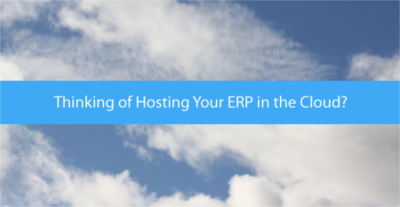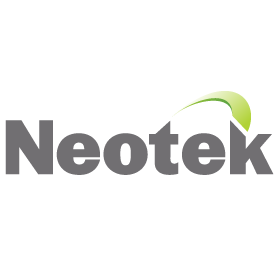
Thinking of Hosting Your ERP in the Cloud?
Cloud Computing is definitely the talk of the town (trending). And now with vendors offering cloud hosted ERP systems we thought it best to explore and explain the benefits and pitfalls.
Thinking of Hosting Your ERP (System) in the Cloud?
Cloud Computing is definitely the talk of the town (trending). And now with vendors offering cloud hosted ERP systems we thought it best to explore and explain the benefits and pitfalls.
Given Neotek has spent over 14 years in the “cloud” we do happen to know a thing or two about it.
For businesses that have a small IT department or none at all then hosting your ERP in the cloud appears to make sense or does it? So what are the pros and cons to cloud hosted ERP systems versus premise based?
Pros
- Reduced capital costs – on hardware, software, user licences and implementation
- Potential lower operating costs – for maintenance, configuring, upgrades and IT staff
- Typically faster implementation
- Faster updates and upgrades
- Improved accessibility (access from anywhere providing you have connectivity)
- Easier integration with other cloud services
- Flexibility and Scalability – can be adapted to fit constantly changing business requirements
- Less risk of technology becoming obsolete because cloud offerings are usually “evergreen services”
- Backups done for you
- Only pay for what you need
- Improved system availability and disaster recovery (dependent on provider)
- Focus on core competencies – focus resources elsewhere as don’t have to maintain an IT department
Cons
- Subscription expenses (that may increase over time)
- Security and confidentiality risks
- High dependency on network reliability and speed (performance risks)
- Potential limitations on extensive customisation and complex integration
- Outage risks
- Potential limitations on data transfer
- Customisation and integration limitations
- Functionality limitations (cloud ERP systems tend not to be as mature a product)
- Potential higher operating costs
- Your data is slightly less at your control
- Hard to accurately define Service Level Agreements
- Less support for other on-premise legacy systems
- Compliance with data regulations
Not all Cloud ERP systems may offer the above or have the potential “issues” mentioned. It is not an exhaustive list, however it serves as a starting point when considering a cloud based ERP or if you are thinking of having your ERP system hosted in the cloud. Other points to consider when choosing whether or not to host your ERP in the cloud:
- Do you have high speed broadband otherwise connecting to your ERP system and working in your ERP system is going to become rather tiresome.
- Does your service provider offer you a guaranteed internet connection?
- Do you or your service provider have “back up” connectivity in place?
It always pays to do your homework and if you have any questions, feel free to talk with us!
We are here to help you make an informed decision.
Links:
Acumatica. What is Cloud ERP. Available via http://www.acumatica.com/what-is-cloud-erp-software [accessed February 11, 2015]Delaney, L. 10 Benefits of Cloud Computing. Verio. Available via http://www.verio.com/resource-center/articles/cloud-computing-benefits/ [accessed February 11, 2015]
Duan et al. 2012. Benefits and Drawbacks of Cloud-Based Versus Traditional ERP Systems. Proceedings of the 2012-13 course on Advanced Resource Planning W.J.H. van Groenendaal (ed.). Available via http://www.academia.edu/2777755/Benefits_and_Drawbacks_of_Cloud-Based_versus_Traditional_ERP_Systems [accessed February 11, 2015]
Contact Us
- Address: 45 Arrenway Drive, Rosedale, Auckland 0632, New Zealand
- Phone: +64 9 915 6655
- Email: info@neotek.co.nz


